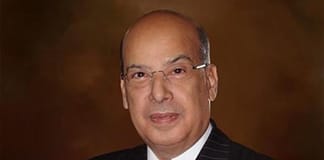
Prime Minister Gaston Browne, delivering the EC$1.64 billion budget to Parliament on Thursday, said that the bond with a 10 year, 4.5 per cent instrument registered on Euroclear, “is the first and largest bond of its kind issued by Antigua and Barbuda and it has been fully subscribed.
“This financing provides an incredible opportunity for the government to re-profile its debt, to ensure sustainability going forward, and to invest in strategic projects that will drive economic growth, create employment, and generate increased revenue to finance government operations.”
Browne said that the proceeds from this bond will be used to implement projects that will stimulate the economy and secure growth of eight per cent this year.
He said two of these projects include the acquisition and renovation of the Jolly Beach Hotel and “ensure payment of severance due to the Jolly Beach workers upon successful acquisition of the property. He said the funds will also be used to construct a hotel at Morris Bay.

But Browne said that despite the government being able to raise the money on the international market, a grave anomaly still exists in the way that successful small economies are treated by the international financial institutions and some wealthy countries.
He said developing countries, including some in the region, received financial support from traditional sources such as World Bank and the International Monetary Fund (IMF) to help mitigate the effects of the coronavirus (COVID-19) pandemic on their populations, without having to adopt adjustment programmes and austerity measures that are typically associated with financing from these institutions.
“However, though we too were facing significant economic and social hardships as a result of the pandemic, Antigua and Barbuda did not benefit from the special financing windows intended to help countries impacted by the crisis that has crippled the globe for nearly 24 months.
“That is because, without any regard for the vulnerabilities we face, we are disqualified because of the flawed criterion of high per capita income,” Browne said, adding that “even though our revenues also plummeted, and our people also faced the loss of life and livelihoods, our so-called high-income status prevented us from accessing much-needed financing.

“We are the victims of our successes in transforming our nation and achieving high per capita income, social development and political stability in which democratic principles are upheld; including the right to trade union representation and better conditions of employment.
“Further, our attempts to access the IMF’s Rapid Financing Instrument, which is not tied to an IMF programme, was derailed because of our indebtedness and arrears to Paris Club creditors, who, even in the height of the pandemic, refused to reschedule our debt.”
But he said he is happy to note that the efforts of Caricom to present the case for the inclusion of vulnerability in the determination of a country’s eligibility for development assistance have gained traction.
“We intend to continue to pursue this inequity vigorously in every international organisation and bilateral encounter,” Browne said.
Meanwhile, Antigua and Barbuda said that it had received EC$123.1 million in revenue from the Citizenship by Investment Programme (CIP) which provides citizenship to foreign investors in return for making a substantial investment in the socio-economic development of the island.
Antigua and Barbuda is among several Caribbean countries utilising a CBI programme and Prime Minister Browne said that last year a total of 498 applications were received reflecting a 36 per cent increase over the number of applications received in 2020.
“Importantly, even with the impact of the COVID-19 pandemic on travel and global movement of people, applications received by the CIP Unit in 2021, represented a 5.5 per cent increase above applications received in 2019 – the last pre-COVID year.
“Total revenues generated by the CIP programme for the year 2021 amounted to $123.1 million and helped to cushion the adverse effects of declining government revenues from other sources. Those monies were used primarily to help our health sector in our national fight against COVID-19 for the benefit of all our people,” Browne added.
Advertise with the mоѕt vіѕіtеd nеwѕ ѕіtе іn Antigua!
We offer fully customizable and flexible digital marketing packages.
Contact us at [email protected]














When you borrow money from financial institutions such as the Paris Club and do not pay it back after decades in default. Tell me. How do you expect any reputable financial institution to loan GOAB any monies?
You cuss UPP on Night Soil Radio with misinformation weekly. UPP as a government tried to renegotiate the Paris Club debt during their two terms in office. They were unsuccessful. The Paris Club want their money. Full Stop.
Question. I hope you can supply the reading and listening public with this information the next time you decide to speak on the Paris Club debt.
When were the monies advanced to GOAB? What was the purpose for the loan and how much was borrowed? When did GOAB default on the loan and what is the interest that has accrued on the borrowed principal over time?
Now on the ability to float a bond of 200 million dollars at 4.5% interest over a 10 year period. Explain to the people that those funds will be strapped to the taxpayers back 10 years from now. Along with all the borrowings that have saddled the government with unsustainable debt. Curious to know;what sureties are attached in case of default?
Hopefully this injection of capital funds will generate a sufficient return to satisfy the debt and stimulate the economy. God help us if it doesn’t! You’ve mortgage the country to foreign entities.
Come off the big words and talk to the people with clarity and diction about the state of the economy and debt load that continues to grow at an unsustainable pace. Simply put. GOAB needs to stop borrowing from Peter to pay Paul.
Ok a fee questions. Given it’s Euroclear is there an ISIN number? An the instrument be located on Bloomberg? Who are the underwriters? Who are the arrangers? What are the terms of the Financing? Tenure maturity? What type of instrument is it? What’s the cost of the financing? Was it approved by the Minister of Finance and the Cabinet? Was it brought before Parliament. . I believe there is a 5 month grace period before tabling…. Is the promoter a tenant in the House of the Prime Minister? There need to be much transparency on such a large financial offering.. I hope it’s not hot money that went into this thing that could cause irreparable damage down the road. ..
When you done bury the country in debt that the country can’t pay back, what are you going to do? Retire and expect are we to find money to pay your pension? And leave the problem for a subsequent government? You are borrowing, borrowing and the country can see nothing for this money. Please call the election, and if the sheep and them re-elect you, then them and them grand pickney deserve what they get. Heaven Help us.
Comments are closed.